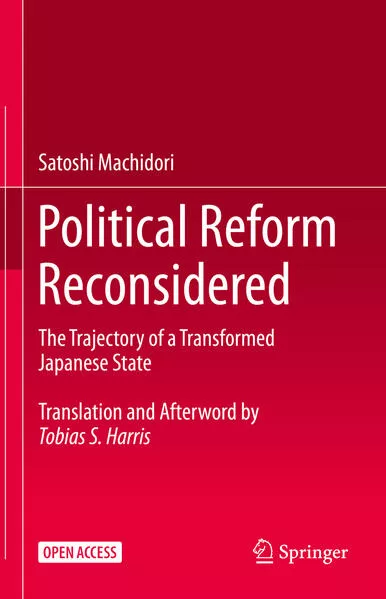
- Publikationen ca: 3
- Buchbewertungen ca: 2
- Fragen & Antworten
Satoshi Machidori
About the author of this book
Satoshi Machidori is professor of political science at the Graduate School of Law, Kyoto University. he obtained his M.A. from the University of Wisconsin-Madison in 1997 and Ph.D. from Kyoto University in 2003. His research focus is on comparative study of political institutions such as legislative and executive branches. He has published many books and articles mainly in Japanese, including Shusho Seiji no Seido Bunseki (The Japanese Premiership: An Institutional of the Power Relations) (Tokyo: Chikura Shobo, 2012), awarded the Suntory Prize. Some works are written in English, including a chapter of Examining Japan’s Lost Decades, edited by Yoichi Funabashi and Barak Kushner (London: Routledge, 2015). He also serves as a public intellectual, giving short commentaries on major newspapers and online news sites such as nippon.com.
About the translator and author of the afterword
Tobias S. Harris is a leading expert of Japanese politics, widely quoted in leading world publications and a regular guest on television and radio programs. He is the Deputy Director of the Asia Program at German Marshall Fund of the United States.
After working on the staff of a Japanese legislator in 2006-2007, he ran the popular blog “Observing Japan” and conducted graduate research at MIT and the University of Tokyo. From 2013 to 2021, he was the Japan analyst at Teneo Intelligence, the political risk division of Teneo, a leading CEO advisory firm. He was also Economy, Trade, and Business Fellow at the Sasakawa Peace Foundation USA, a Washington, DC-based think tank focused on U.S.-Japan relations, from 2014 to 2020. He then served as senior fellow for Asia at the Center for American Progress till October 2022.
He was born in Chicago, and currently lives in Bethesda, Maryland with his wife and their two sons. He has an M.Phil in International Relations from the University of Cambridge and a BA in Politics and History from Brandeis University.
Political Reform Reconsidered
This Open Access book provides a comprehensive analysis of political reforms in Japan since the 1990s, emphasizing the role of ideas in shaping their goals and outcomes. For more than fifteen years following the collapse of Japan’s economic bubble, politicians, business people and academics tackled a range of institutional reforms.
Political Reform Reconsidered
This Open Access book provides a comprehensive analysis of political reforms in Japan since the 1990s, emphasizing the role of ideas in shaping their goals and outcomes. For more than fifteen years following the collapse of Japan’s economic bubble, politicians, business people and academics tackled a range of institutional reforms.
Political Reform Reconsidered
This Open Access book provides a comprehensive analysis of political reforms in Japan since the 1990s, emphasizing the role of ideas in shaping their goals and outcomes. For more than fifteen years following the collapse of Japan’s economic bubble, politicians, business people and academics tackled a range of institutional reforms.


